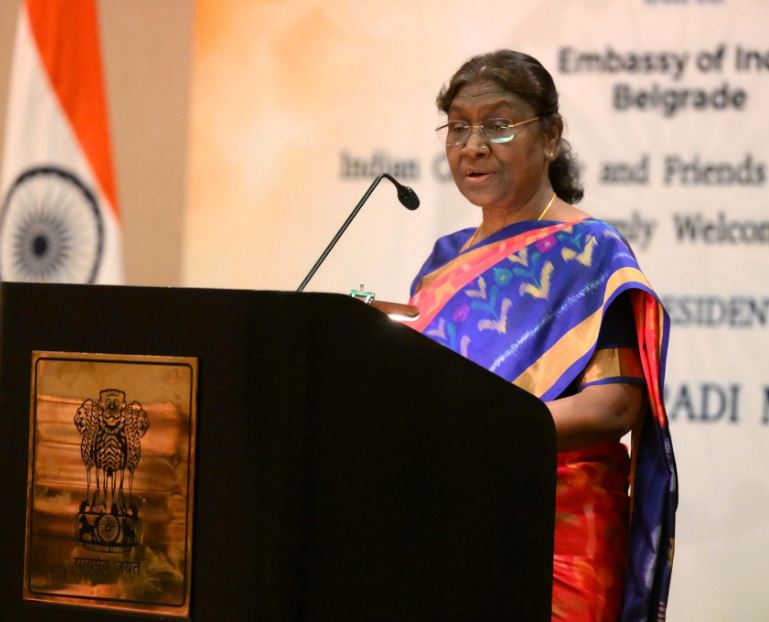Srinagar: President Droupadi Murmu Wednesday said finding ancient, organically grown knowledge is the duty of the academia in the country.
In her address at the 20th convocation of the Kashmir University, the president noted that the new National Education Policy (NEP-2020) focuses on the Indian system of knowledge.
“The new education policy has focussed on the Indian system of knowledge. The work done by an expert, Suyya, about 1,200 years ago, to save the city of Srinagar from the flood of Jhelum can be termed as hydraulic engineering. There are many such examples in ancient India. Finding this organically grown knowledge is the duty of the academia today,” she said.
Murmu, who is on her first visit to the Union Territory after becoming president, started her speech with the phrase “Yee mouj Kasheer” (O Mother Kashmir!), drawing applause from the audience. She also said that the Kashmir University is blessed by the Hazratbal shrine.
The university is located near the shrine which houses a relic of Prophet Mohammad.
The president expressed happiness over woman students constituting 55 per cent of the university’s roll. “It is heartening to know that 55 per cent of students enrolled in the Kashmir University are girls while they make up 65 per cent of the gold medallists and prize winners. I noticed that out of the 21 students who were felicitated here, 17 were girls,” Murmu said.
During the convocation ceremony, 21 students were given gold medals by the president.
“Educated girls are the face and future of our society. Our women and girls are proving their mettle and after the Women Reservation Bill 2023, they are ready to play a larger role in the leadership of the nation in the future,” the president said.
She said this bill will be a revolutionary step towards women-led development. “It is my belief that women will push forward development,” the president said.
Murmu also highlighted that India’s presidency of the G20 has been praised all over the world.
Borrowing a Kashmiri phrase by revered Sufi saint Sheikh Noor-Ud-Din-Wali — “ann poshe teli yeli wann poshi” — that means food will last as long as the forest lasts, she said that sustainable development is a part of Kashmir’s heritage.
It has been rightly said that if there is heaven on earth, it is here, she said, adding that it is the responsibility of the youth to save that.
Referring to the Kashmir University’s emblem, she noted that it has three words of the ‘Upanishads’ and a part of a Quranic verse.
“Both talk about going from darkness to light. There is a message and prayer in this. Our nation’s progress will be proportionate to the efforts made by the youth towards peace, prosperity and knowledge. The nation whose youth adopt the path of development and discipline, that society and nation progress on the path of development and prosperity,” she added.
President Murmu said the alumni of the Kashmir University had made the institution proud by serving the nation well.
“The list of such alumni is very long and it is not possible to take all the names. Recently, Ghulam Nabi Azad was awarded the Padma Bhushan while Professor Chaman Lal Sapru and Professor A N Pandita were awarded the Padma Shri. I am happy to know that three NSS (National Service Scheme) volunteer students of this university took part in the Republic Day parade. I praise all three. I gave the President’s award to one of them – Kifayatullah Malik September 29,” she said.
Such young people deserve all the praise and accolades for lending a helping hand to others through social service, the president said.
“I would like to see the youth of Kashmir actively participate in social service while pursuing their academics. By doing this, you can bring change in the country and become a role model for the nation,” she said.
Earlier in the day, the president paid tribute to fallen soldiers at the Army headquarters here.
PTI
